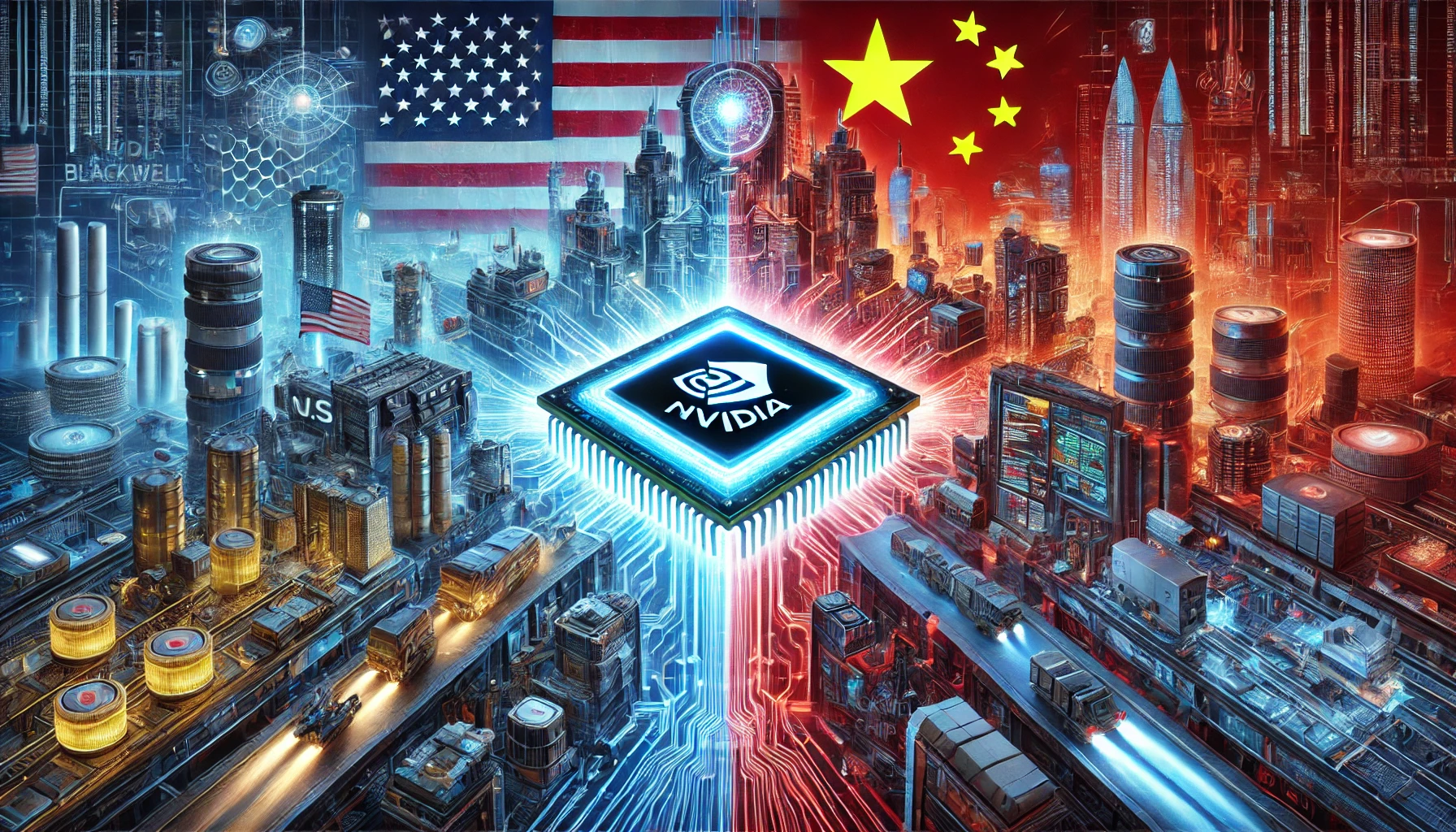
Chinese Buyers Are Getting NVIDIA Blackwell Chips Despite U.S. Export Controls
Introduction
The global semiconductor industry is at the center of a growing technology battle between the United States and China. The latest development in this ongoing struggle involves NVIDIA’s Blackwell AI chips, which are reportedly making their way into China despite strict U.S. export controls.
These chips are some of the most advanced artificial intelligence processors in the world. Their availability in China raises serious questions about the effectiveness of U.S. trade restrictions and the future of technological dominance.
The U.S. Export Controls on AI Chips
In recent years, the U.S. government has imposed strict export bans on advanced AI chips, particularly those made by NVIDIA. These restrictions aim to prevent China from gaining access to cutting-edge AI technology that could enhance its military, surveillance, and technological capabilities.
The Blackwell series chips are among the most powerful AI processors available today. NVIDIA designed them to accelerate complex machine learning and AI workloads. They are critical for applications such as:
- Large-scale AI model training
- Autonomous systems
- High-performance computing
Because of these capabilities, the U.S. government sees them as strategic assets. Preventing their use by Chinese companies and research institutions is a key part of American policy.
How Blackwell Chips Are Reaching China
Despite these restrictions, reports suggest that Chinese firms are still obtaining NVIDIA Blackwell chips through indirect channels. This raises concerns about how effectively the U.S. can enforce its export bans.
Several methods may be enabling this gray-market activity:
- Third-party distributors purchasing these chips and reselling them under different terms
- Black-market imports where traders circumvent regulations by illegally moving products across borders
- Subsidiary loopholes allowing Chinese firms to acquire chips through affiliates in countries with less strict U.S. export rules
- Modified technology restrictions where some versions of AI chips are slightly altered to bypass direct export controls while still offering significant power
These workarounds allow Blackwell chips to enter China, despite U.S. regulations intended to block them.
Why China Wants Blackwell AI Chips
China has ambitious plans to lead the world in artificial intelligence. AI is crucial in industries ranging from healthcare and finance to national security and military advancements.
The Blackwell series chips offer extreme efficiency in processing AI workloads. Chinese companies and research institutions need this technology to stay competitive with global players like OpenAI, Google, and Meta.
With limited domestic alternatives, China sees acquiring NVIDIA hardware as essential to maintaining its edge in AI research and development.
The U.S. Struggle to Enforce Trade Restrictions
The difficulty in stopping these transactions demonstrates the challenges of enforcing high-tech trade barriers.
Export controls work on paper, but in practice, enforcement is complicated due to:
- Global supply chains where many components and chips pass through multiple countries before reaching their final destination
- International trade networks that allow China to do business with suppliers in regions where U.S. regulations are harder to enforce
- Evolving technology that enables companies to adjust chip designs or manufacturing techniques to comply with trade laws while still delivering powerful capabilities
Cutting off every possible supply route requires cooperation from multiple countries and constant monitoring of trade activity.
Possible U.S. Responses to the Issue
If Chinese companies continue acquiring NVIDIA Blackwell chips despite export controls, the U.S. may take stronger actions. Some possible measures include:
- Tightening restrictions by refining export bans to close loopholes being exploited by third parties
- Targeting supply networks by increasing efforts to track and block shipments passing through intermediary countries
- Imposing sanctions on Chinese firms caught acquiring restricted AI chips, potentially affecting their global operations
- Offering incentives for domestic and allied semiconductor manufacturers to reduce China’s access to advanced AI chips
However, each of these approaches presents challenges. Stricter enforcement could escalate trade tensions, and excessive restrictions might push China to develop an independent semiconductor industry more quickly.
The Future of AI Chip Trade Between the U.S. and China
The race for AI dominance will continue driving intense competition between the U.S. and China. NVIDIA’s Blackwell chips are just one example of how global politics and technology are deeply interwoven.
If Chinese buyers keep finding ways to acquire these chips, U.S. policymakers may be forced to rethink the effectiveness of their export strategies.
Moving forward, key questions include:
- Will NVIDIA find itself caught in a bigger geopolitical struggle over AI leadership?
- Can the U.S. effectively block China’s access to cutting-edge semiconductors?
- How will China respond if access to foreign AI chips becomes even more restricted?
The answers will shape the future of global AI development and influence both economic and technological power balances.
Conclusion
Despite U.S. export controls, reports indicate that NVIDIA’s Blackwell AI chips are still reaching Chinese buyers through indirect trade channels. This raises concerns about the effectiveness of such restrictions and highlights the complex realities of global supply chains.
As AI technology becomes more vital to global competition, both the U.S. and China will seek to strengthen their positions. Whether these restrictions will truly limit China’s technological ambitions remains to be seen.
For now, the battle over AI chips is far from over.


